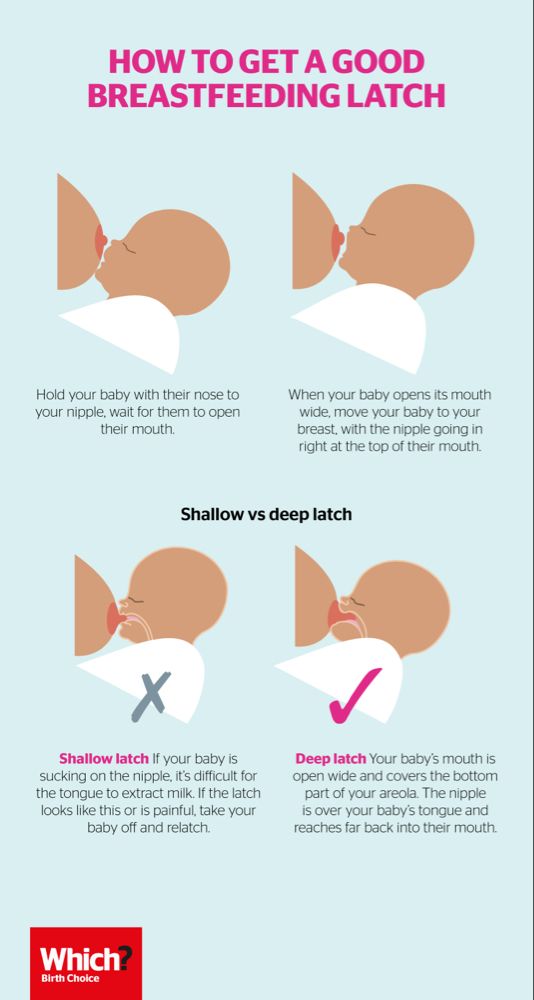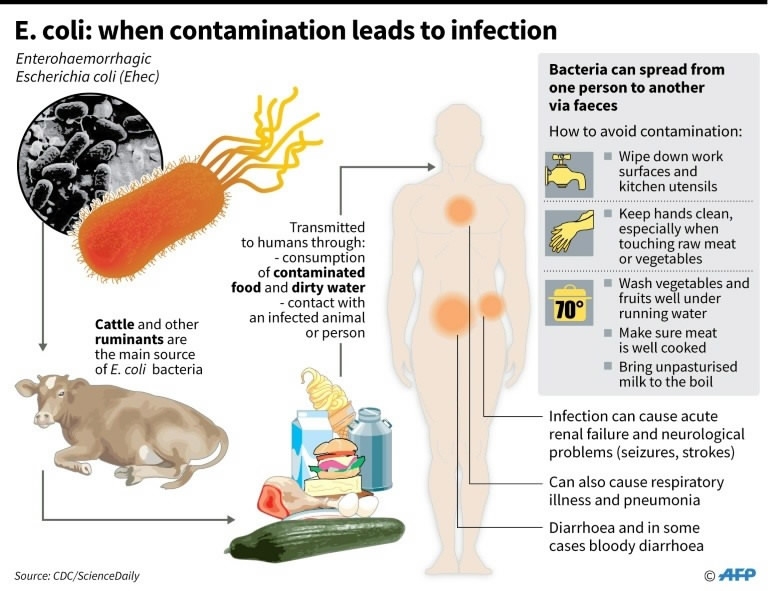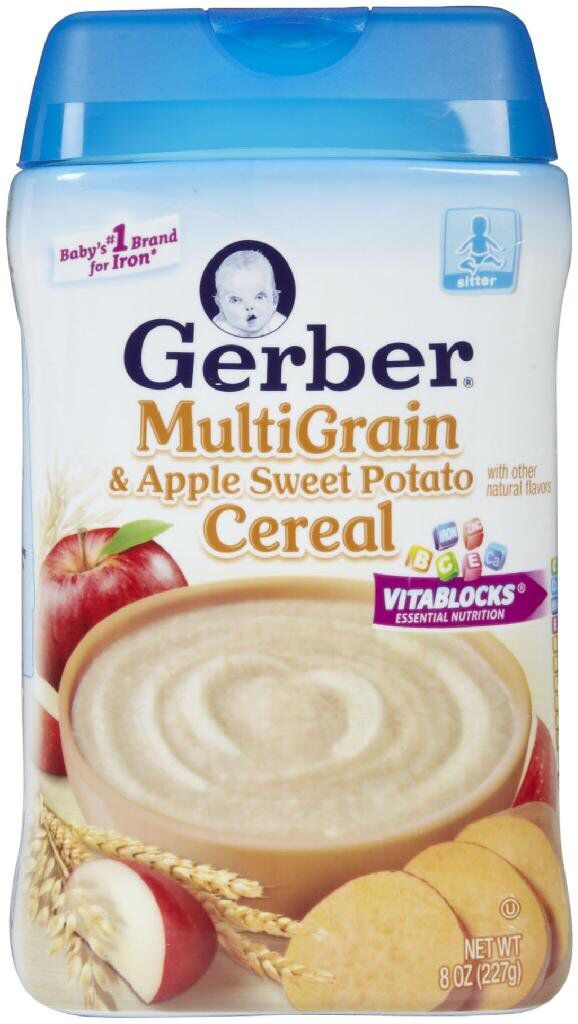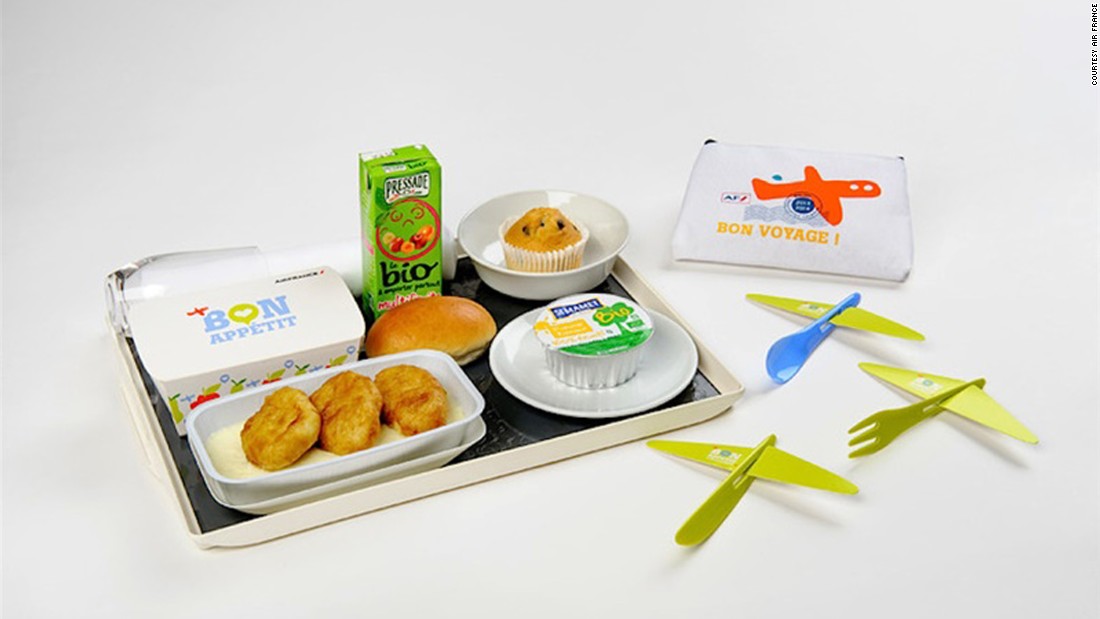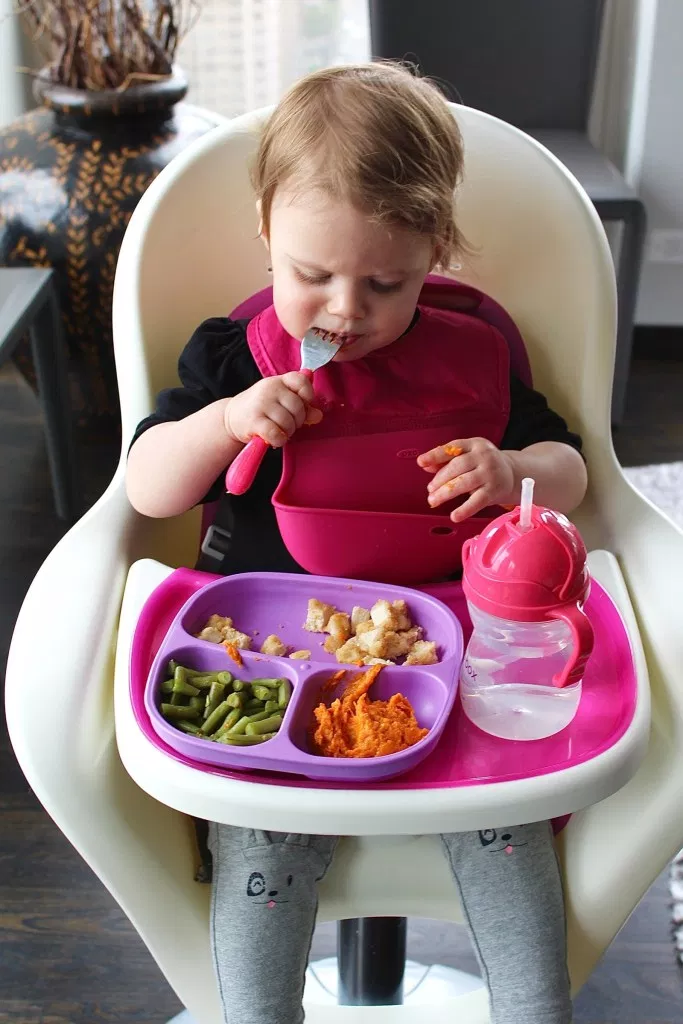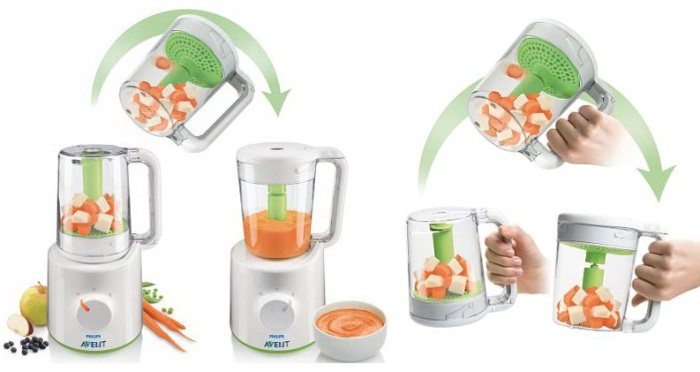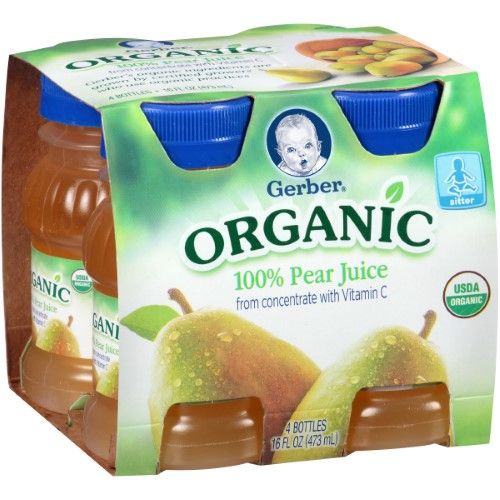Baby food contamination news
Report Finds Heavy Metals in Both Store-Bought and Homemade Baby Foods – NBC4 Washington
Maryland dad Chris Vlcek takes his 7-month-old baby’s health very seriously. That’s why he and his wife use glass instead of plastic bottles, grow many of their own vegetables and prepare Adaleigh’s food from scratch.
“I think it's important to give her the best food that we can,” Vlcek, of Takoma Park, said.
But a recently released report from a child health watchdog group suggests even those steps might not be enough to keep heavy metals out of his baby’s diet.
In a study of 288 store-bought baby food and homemade purees, the nonprofit Healthy Babies Bright Futures found 94% of both types were contaminated with one or more toxic heavy metals, such as lead, arsenic, mercury or cadmium.
“We did not find any evidence that homemade baby food is, in general, any safer, with lower levels of toxic heavy metals, than the store-bought brands,” said Jane Houlihan, who led the study.
Despite the federal government setting limits for lead in drinking water and paint, Houlihan noted it has far fewer standards when it comes to regulating toxic metals in the food babies eat. High levels of toxic metal exposure have been linked to learning, cognitive and behavioral problems, according to the American Academy of Pediatrics.
“For many babies, food is a top source of exposure to these kinds of toxic chemicals that can harm brain development,” Houlihan said.
Local
Washington, D.C., Maryland and Virginia local news, events and information
In 2019, her organization found 95% of store bought baby foods were contaminated with heavy metals, which prompted their latest report on whether it’s better to make your own.
The new study, which also included examining more than 7,000 additional food testing data, led researchers to warn against serving rice cakes or crisped rice cereal, as samples showed they contained higher levels of inorganic arsenic than any other food tested.
The organization is also recommending caregivers rotate where they buy and how often they serve vegetables such as carrots and sweet potatoes, which were found to have lead, arsenic and cadmium.
Meanwhile, Healthy Babies found bananas, baby food brand meats, apples, eggs and watermelon were among the least contaminated. In addition, it found no difference between foods purchased from organic and conventional food aisles.
“It really shows that it matters much more what types of foods parents serve than who makes that food,” Houlihan said.
That’s because much of the contamination comes from the soil, irrigation water or fertilizer used in farming practices, Houlihan said.
She’s among those calling on government regulators to set tougher safety standards for growers and food companies to reduce heavy metal toxins, noting that, after the FDA set limits on heavy metals in juices and infant rice cereal, it saw levels of metals like arsenic drop between 30 and 70%.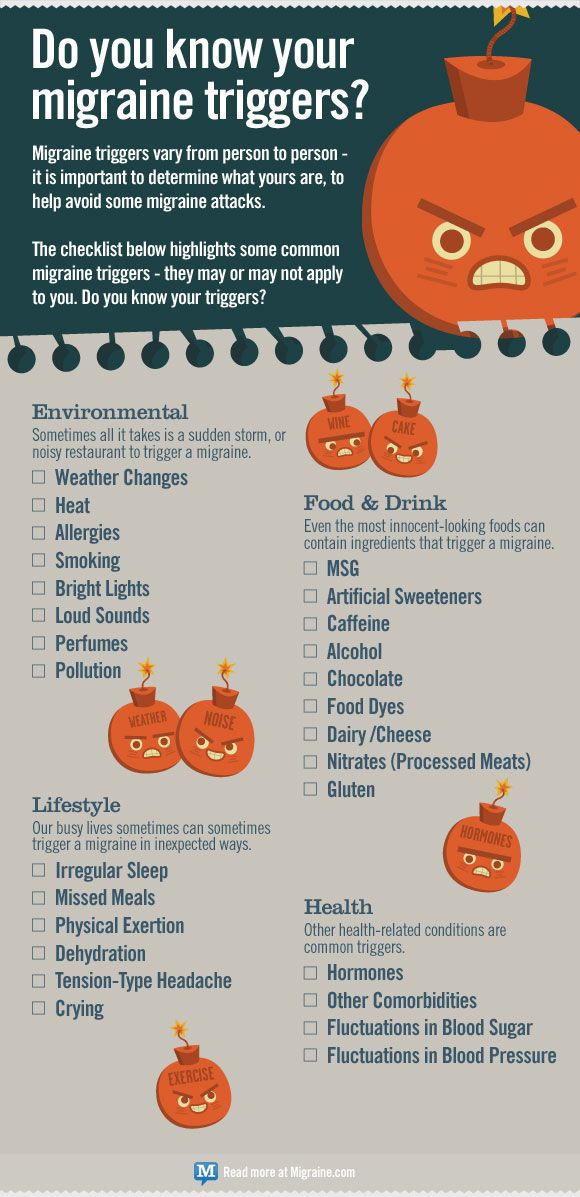
“We know there are things companies can do to reduce levels,” she said.
Illinois Congressman Raja Krishnamoorthi, whose House Subcommittee on Economic and Consumer Policy began investigating baby food manufacturers following Healthy Babies' 2019 report, said the findings underscore the need for government to step in.
“We need to hustle because parents really want choices that are healthier for their babies,” he said.
Last year the FDA announced a plan called “Closer to Zero” that will eventually set new standards for toxic metals in foods. Krishnamoorthi, along with a handful of other Democratic lawmakers, is also sponsoring legislation called the Baby Food Safety Act that would set toxic metal limits, increase FDA oversight and invest in farming technology and research to reduce heavy metals in crops.
“The FDA, for the first time, is taking this issue seriously,” Krishnamoorthi said. “We just want them to act faster, so we want to give them more resources to do so.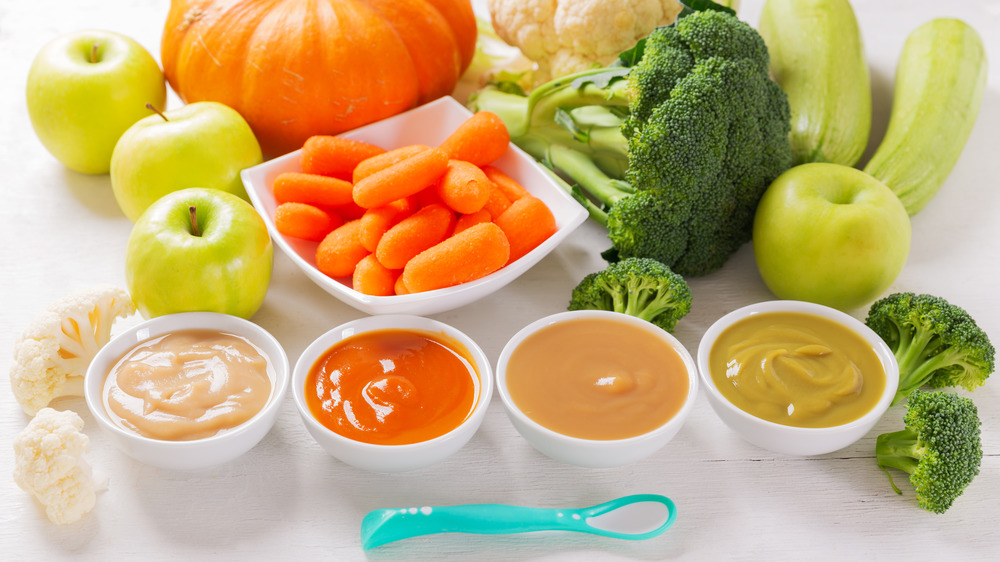 ”
”
In a lengthy statement, an FDA spokesperson said, “while we share the desire for reductions in exposure to these harmful elements as soon as possible, it takes time to develop necessary scientific data and information to establish action levels that are science-based and protective of public health.”
The spokesperson added that, in the meantime, “removing all foods with any level of a contaminant would result in widespread shortages of many foods, including many of the foods that contain nutrients vital to growth and development.”
News4 reached out to several baby food companies but only Beech-Nut and Gerber responded, both hailing the study as showing home-made foods aren’t necessarily safer.
“HBBF’s study reiterates the fact that heavy metals are present across the U.S. food supply,” said a spokesperson from Beech-Nut, adding: “While scientists work to minimize plants’ heavy metals uptake, today they are impossible to completely remove from the crops.”
Still, the spokesperson said the company is “committed to working” with the FDA on its “Closer to Zero” program.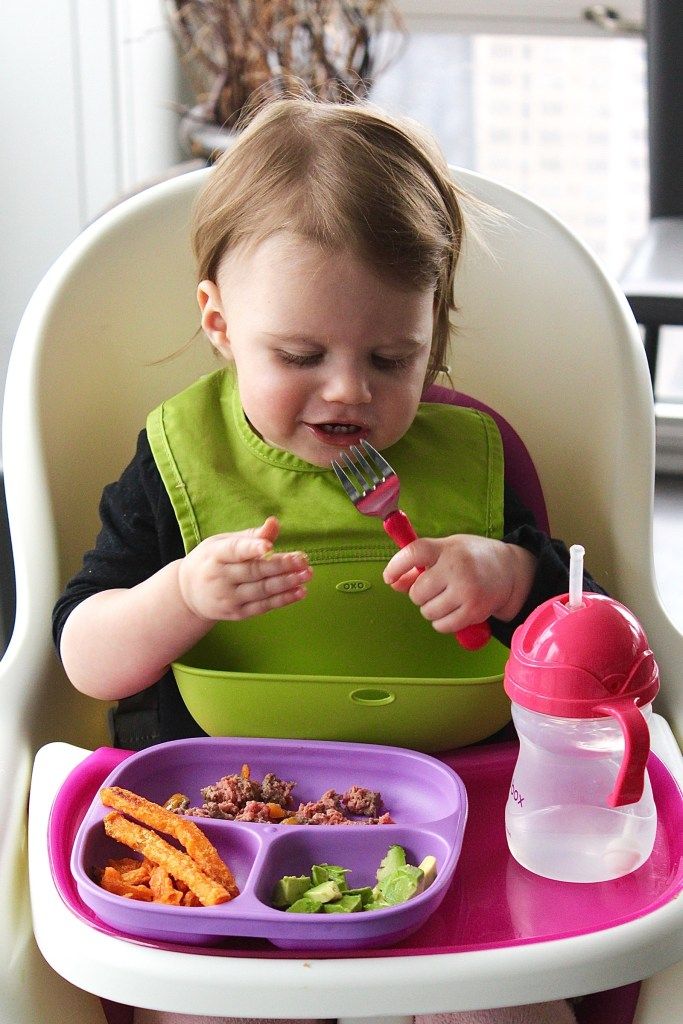
Gerber also said it supports reducing “the levels of heavy metals wherever possible.”
Vlcek, the Maryland dad, said his first reaction upon hearing the report was thinking: “This is terrible,” but he added he also wasn’t surprised given the heavy use of pesticides and chemicals in crops worldwide.
He plans to continue growing his own produce as much as possible, but notes he shouldn’t have to when it comes to reducing toxins in his baby’s diet.
“You should have a system that's designed to protect children, at a minimum,” he said.
- Variety is key: mix up what you serve and where you buy it
- Rinse rice and scrub and peel carrots and potatoes to remove as many heavy metals as possible
- Offer fresh or frozen produce over canned
- Serve water instead of juice
Manufacturers allowed baby food contaminated with heavy metals to remain on shelves, lawmakers say
CNN —
Gerber and Beech-Nut failed to properly test and remove baby foods with dangerous levels of inorganic arsenic from the market, while Sprout Foods Inc., Walmart’s Parent’s Choice and Plum Organics (formerly owned by Campbell) were lax in testing and controlling for heavy metals such as lead, mercury and cadmium, according to a US Congressional report released Wednesday by the House Subcommittee on Economic and Consumer Policy.
“Today’s report reveals that companies not only under-report the high levels of toxic content in their baby food, but also knowingly keep toxic products on the market,” said Democratic Rep. Raja Krishnamoorthi of Illinois, chair of the House Subcommittee on Economic and Consumer Policy, which conducted the investigation.
Several baby food manufacturers CNN contacted disagree with the subcommittee’s assessment, and all say they are committed to working closely with the US Food and Drug Administration to address the issue.
Arsenic and other heavy metals are natural elements found in soil, water and air. Rice, which is a common ingredient in baby cereal, is grown submersed in water and is especially good at absorbing inorganic arsenic, the most toxic form.
hm baby solid food_00000924.jpg
95% of tested baby foods in the US contain toxic metals, report says
Exposure to heavy metals in baby food became a growing concern for parents after Healthy Babies Bright Futures, a coalition of advocates committed to reducing babies’ exposures to neurotoxic chemicals, tested 168 baby foods from major manufacturers in the US.
The testing found 95% of sampled baby foods contained lead, 73% contained arsenic, 75% contained cadmium and 32% contained mercury. One fourth of the baby foods contained all four heavy metals. The results mimicked a previous study by the US Food and Drug Administration that found one or more of the same metals in 33 of 39 types of baby food tested.
“Even in trace amounts, these contaminants can alter the developing brain and erode a child’s IQ,” said Jane Houlihan, research director for Healthy Babies Bright Futures.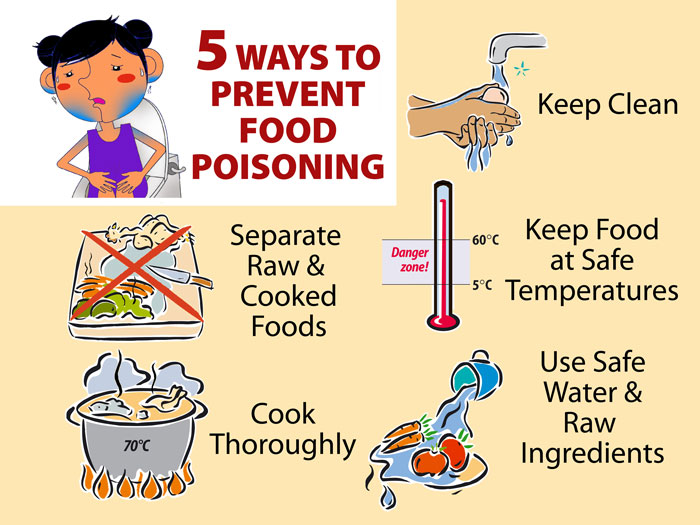
“The impacts add up with each meal or snack a baby eats — especially when the levels are as high as Healthy Babies Bright Futures’ research and the subcommittee’s new report show.”
In an earlier investigation released in February, the subcommittee looked at internal testing documents from four major baby food manufacturers: Gerber; Beech-Nut Nutrition; Nurture, Inc., which sells Happy Baby products; and Hain Celestial Group, Inc., which sells Earth’s Best Organic baby food.
The documents showed some products contained levels of lead, mercury, cadmium and inorganic arsenic were far above limits set for bottled water by the FDA and the US Environmental Protection Agency.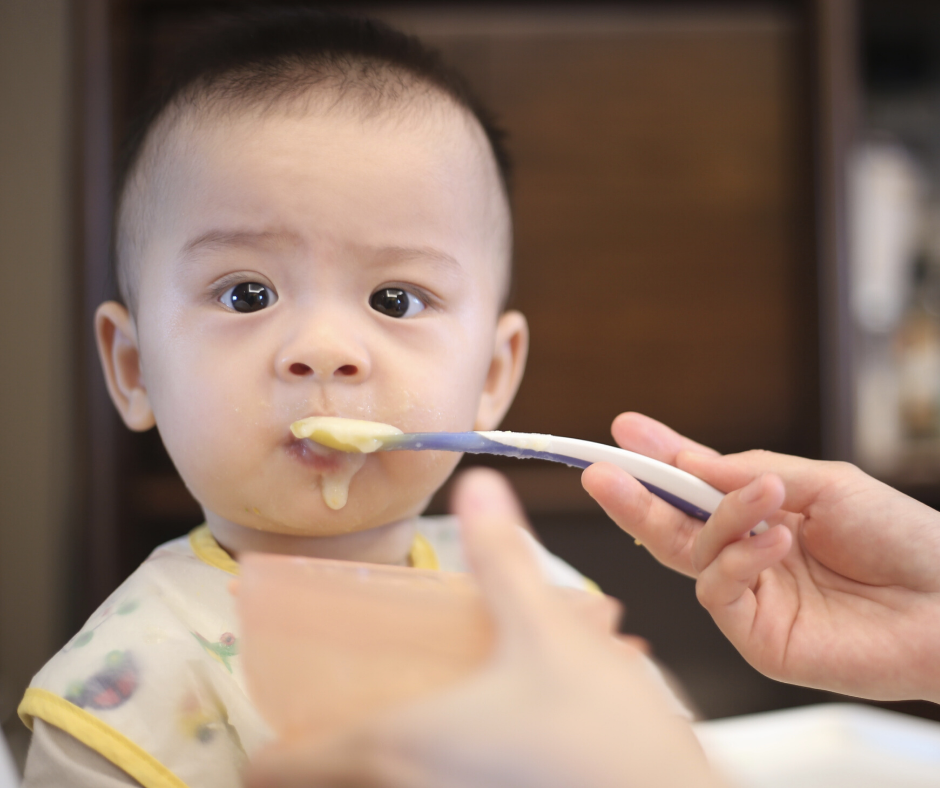 Ground water can easily absorb heavy metals from the soil, and old lead pipes leak, so drinking water is a key exposure to heavy metals.
Ground water can easily absorb heavy metals from the soil, and old lead pipes leak, so drinking water is a key exposure to heavy metals.
Baby taking a bite of food from a spoon with jar of baby food in foreground - stock photo
Chris Tobin/Digital Vision/Getty ImagesLeading baby food manufacturers knowingly sold products with high levels of toxic metals, a congressional investigation found
Inorganic arsenic, lead, cadmium and mercury are in the World Health Organization’s top 10 chemicals of concern for infants and children.
Of the four companies, the subcommittee found only Nurture tested the final product – the actual food babies would eat – after all ingredients had been added.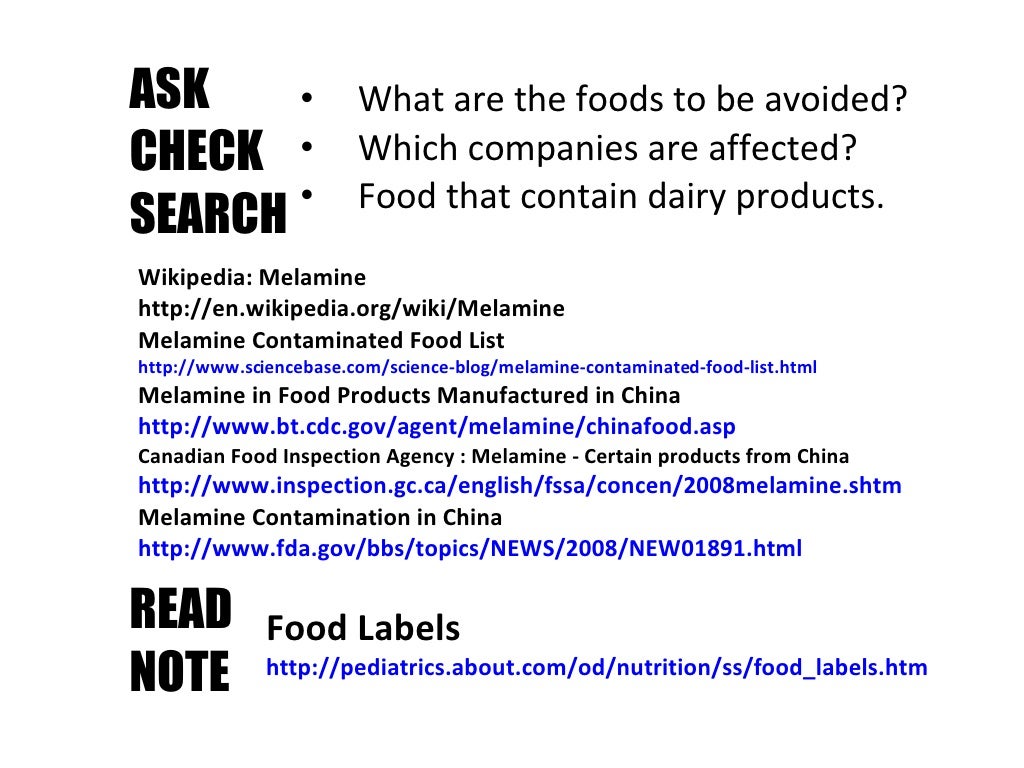 The rest of the companies tested some, but not all ingredients, the investigation found.
The rest of the companies tested some, but not all ingredients, the investigation found.
That’s a significant concern, the report said, because each ingredient may have levels of toxins that fall under the cutoff for safety – but when added together, they may exceed government standards.
There is no safe level of lead for children, according to the EPA and US Centers for Disease Control and Prevention. While there are no specific limits set for infant foods, the EPA and FDA set an upper limit of 2 parts per billion of inorganic mercury in drinking water, and 5 parts per billion for cadmium.
In 2016 the FDA introduced a standard of 100 parts per billion for inorganic arsenic in infant rice cereal, finalizing that guidance in August 2020. But that level is too high to protect babies’ brains, critics said, especially considering the agency had already set the limit for bottled water at 10 parts per billion (ppb).
“FDA set the limit at 100 ppb because it was focused on the level of inorganic arsenic that would cause cancer. It disregarded the risk of neurological damage, which happens at a much lower level,” the report stated.
A maximum level of inorganic arsenic in baby food should be set at 10 parts per billion, the report said, “with a 15 ppb limit for infant cereal, as proposed in the Baby Food Safety Act. ”
”
An FDA spokesperson told CNN that the agency continues to make “steady progress towards developing action levels for lead in foods and evaluating the science to establish reference levels for arsenic and cadmium.”
“We look forward to providing additional updates on our efforts as new data, information, progress updates and additional material are made available.”
In May, the state of Alaska conducted a FDA-funded analysis of Beech-Nut’s and Gerber’s infant rice cereals and found “multiple samples” contained more inorganic arsenic than the “FDA’s 100 parts per billion (ppb) limit,” the report stated.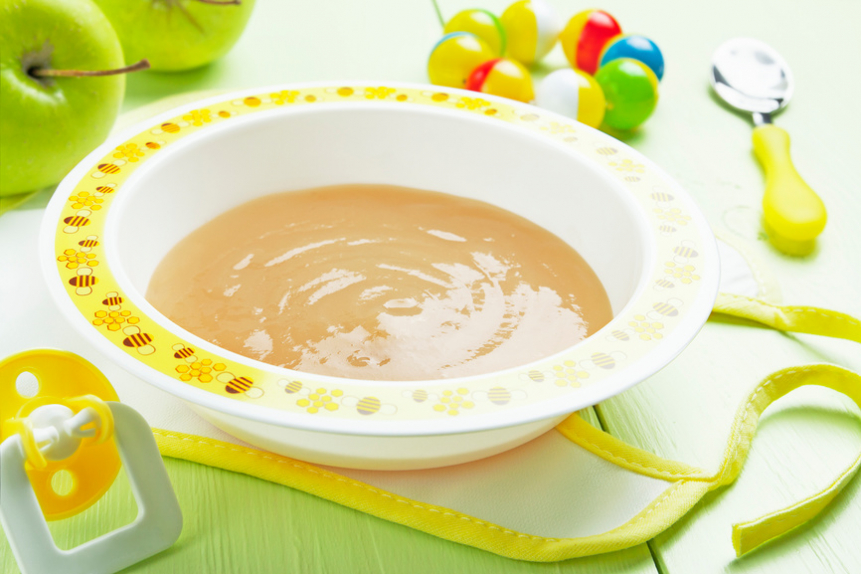
Mother feeds baby boy with a spoon porridge.
Shutterstock/ElRoiBeech-Nut to stop selling baby rice cereal after finding high arsenic levels
In early June, Beech-Nut Nutrition issued a voluntary recall of two infant rice cereals with product codes 103470XXXX and 093470XXXX. The company also announced that it was exiting the infant rice cereal market.
“Beech-Nut is concerned about the ability to consistently obtain rice flour well-below the FDA guidance level and Beech-Nut specifications for naturally occurring inorganic arsenic,” the FDA said in the recall announcement.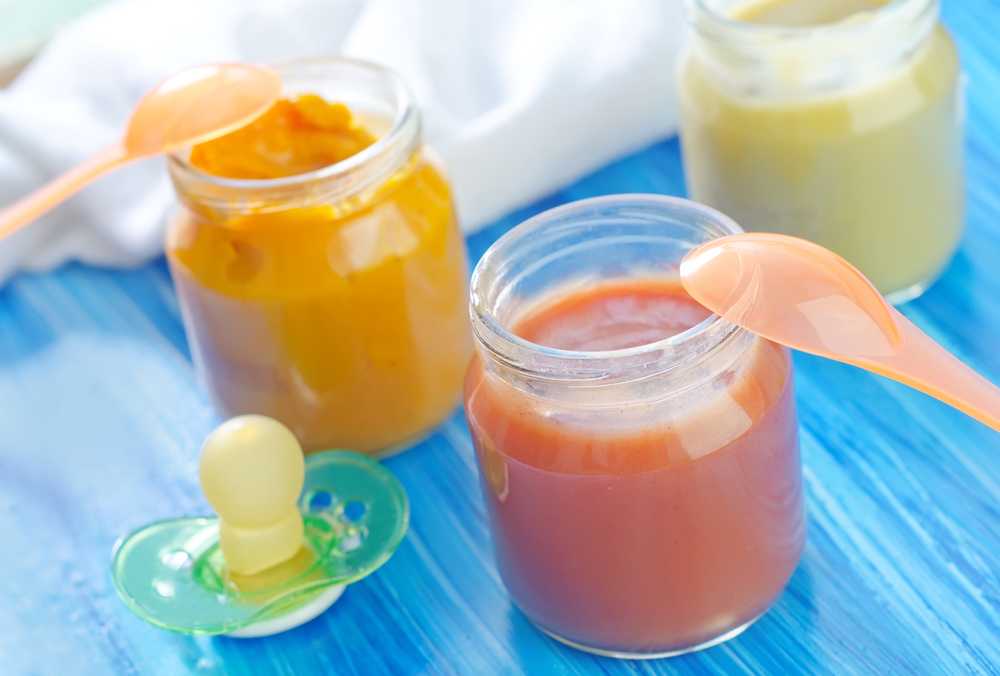
However, the subcommittee criticized Beech-Nut in the new report, saying the manufacturer had not gone far enough to protect the public.
“Beech-Nut only recalled two of its six products that tested over the limit,” the House subcommittee stated.
Beech-Nut Nutrition told CNN that “the assertion that Beech-Nut’s rice cereal recall was too narrow is incorrect” because it proactively withdrew all of its rice cereal products from supermarket shelves.
“Beech-Nut has taken a leadership role and is the first and only national brand to commit to being a fully rice-free brand across its full product portfolio,” the company said.
The subcommittee report was also critical of Gerber.
“Gerber was even worse (than Beech-Nut) —it had two products test over the 100 ppb limit and took no action to tell the public or get them off the shelves,” the subcommittee stated.
A Gerber spokesperson told CNN that the FDA had retested the samples, and was unable to confirm the result by Alaska, adding that the FDA “confirmed to Gerber that no action was needed.”
“While the Subcommittee report notes proposed limits on specific heavy metals, those are based on proposed standards from the Baby Food Safety Act, which are not current law or regulation. All Gerber foods have and continue to meet all applicable guidelines and limits set by the FDA, the governing body for safety regulations in the food industry,” the spokesperson said.
In their original report released in February, the House subcommittee said three companies had failed to fully cooperate with the investigation.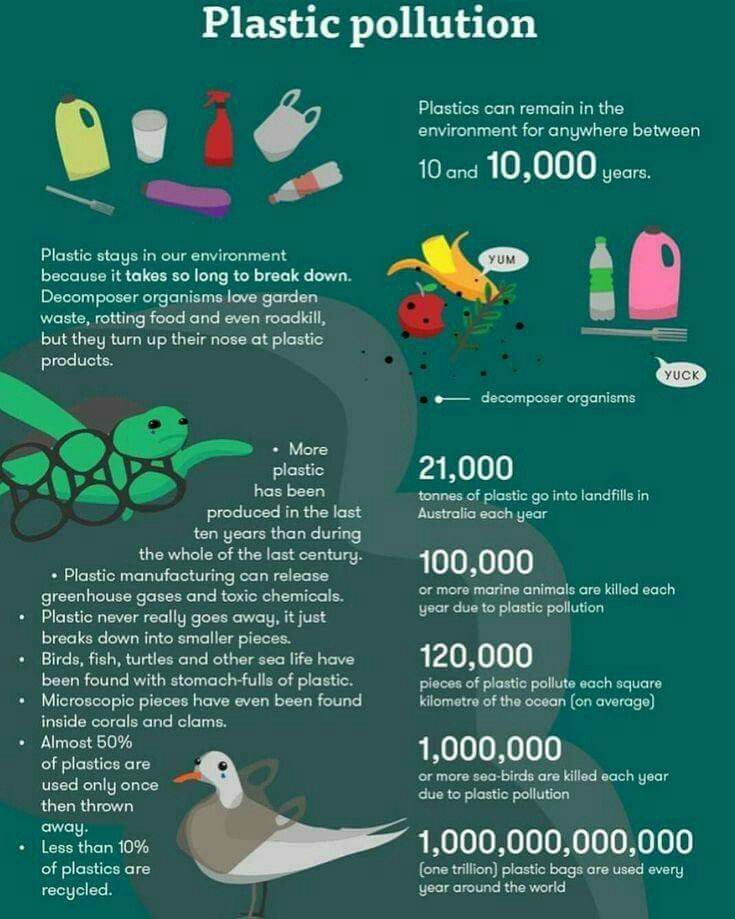 Those baby food manufacturer’s are:
Those baby food manufacturer’s are:
- Sprout Organic Foods, now owned by Canadian cannabis company Neptune Wellness Solutions
- Campbell Soup Company, which in March sold Plum Organics to Sun-Maid Growers of California
- Walmart, which manufactures Parent’s Choice baby food.
Shutterstock
Chemicals in plastics damage babies' brains and must be banned immediately, expert group says
Since February, those companies have cooperated to “varying degrees,” the new report said. Internal company documents provided by Sprout, Campbell and Walmart show similar failures to test or monitor their baby food products, investigators found.
Samples of Plum Organics baby foods tested between 2017 and 2019 contained levels of toxic heavy metals that greatly exceeded safety limits, the investigators reported.
“Plum’s finished products contain up to 225 ppb inorganic arsenic. The majority of Plum’s baby foods also contain over 5 ppb lead, and nearly 40% exceed 5 ppb cadmium,” the subcommittee noted.
A Campbell spokesperson told CNN that despite selling the Plum Organics brand, they will continue to cooperate with the “subcommittee throughout this process” and will continue “support the FDA’s efforts in setting clear and specific science-based federal standards.”
Sun-Maid Growers of California told CNN in an email that it will “thoroughly examine the updated report from the Subcommittee on Economic and Consumer Policy and continue to work with the subcommittee – as well as the industry at large – to address these matters.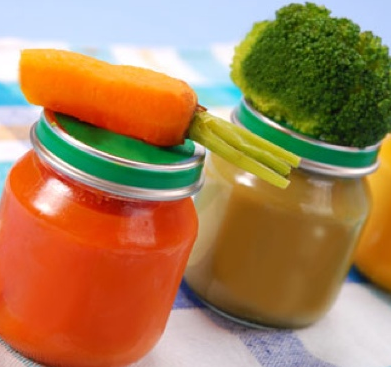 ”
”
In 2018, Walmart “abandoned” a standard in place since 2013 that set an internal inorganic arsenic limit of 23 parts per billion for the baby food it sells, the report said, “quadrupling it” to allow up to 100 parts per billion.
“Walmart offered no justification for its extreme course reversal on protecting babies’ neurological development,” the report stated.
Walmart’s senior director of national media relations, Randy Hargrove, told CNN that the company had “always required that our suppliers’ products meet the guidelines established by the FDA.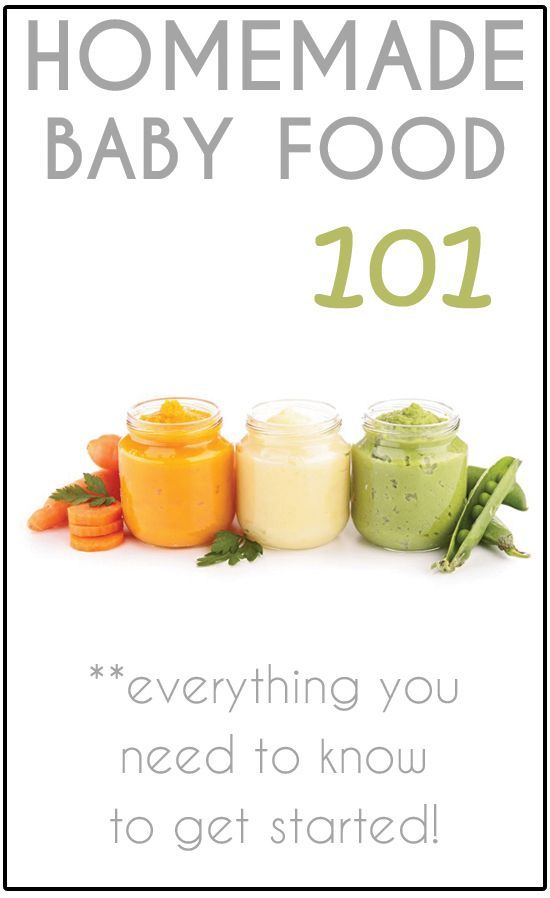 Our specifications have always been aligned with or below the FDA requirements for naturally occurring elements and the FDA noted in April that its testing shows that children ‘are not at an immediate health risk to exposure.’ “
Our specifications have always been aligned with or below the FDA requirements for naturally occurring elements and the FDA noted in April that its testing shows that children ‘are not at an immediate health risk to exposure.’ “
Shutterstock
Chemicals in plastics damage babies' brains and must be banned immediately, expert group says
In the April release cited by Walmart, the FDA also noted that research has shown “reducing exposure to toxic elements is important to minimizing any potential long-term effects on the developing brains of infants and children.”
Finally, investigators found Sprout’s testing practices “to be the most reckless among baby food manufacturers,” the report stated, because it only requires yearly testing for toxic metals and fails to test their finished products.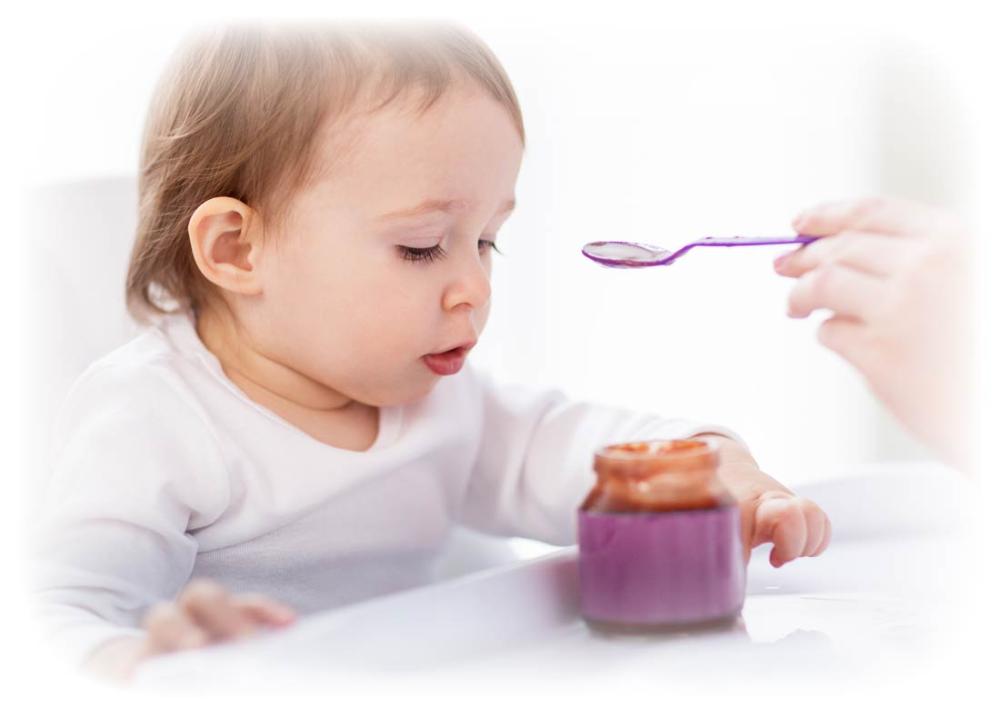
Sprout has not responded to a CNN request for comment on the new report. But on its website, Sprout says that it is ready to make any changes to our “sourcing or processing systems that may be advised by the FDA,USDA, or other relevant regulatory bodies. Sprout will always comply with regulatory guidance and continue to monitor developments closely.”
In both reports, the subcommittee recommended the baby food industry voluntarily test the final product to be sold and address the problem of toxic metals in baby food by phasing out ingredients that are high in toxic heavy metals.
hm baby solid food_00000924.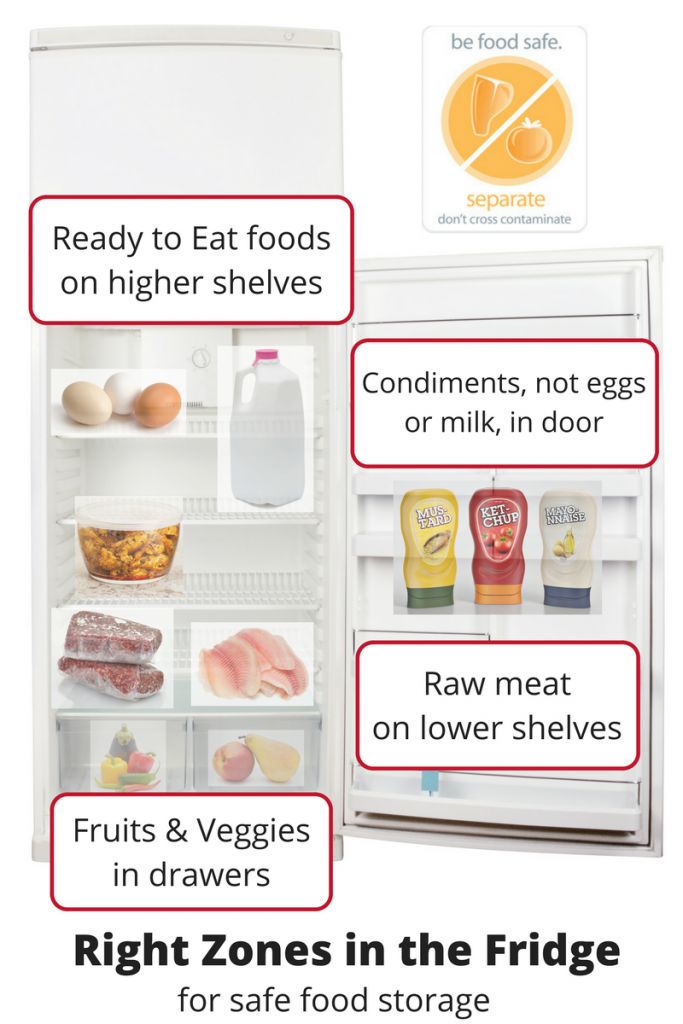 jpg
jpg
New legislation would reduce toxic heavy metals in baby food
“Based on my Subcommittee’s findings, I’m urgently calling on the baby food industry to immediately end harmful practices and conduct finished-product testing,” Krishnamoorthi said in the statement.
In addition, the subcommittee is urging the FDA to move faster in its efforts to establish specific regulations and mandate testing of final baby food products, not just ingredients.
In March, the FDA told baby food manufacturers they must consider toxic chemicals when they test their baby food for potential hazards, but the agency was criticized for not quickly setting concrete rules to remove toxic heavy metals from all baby foods.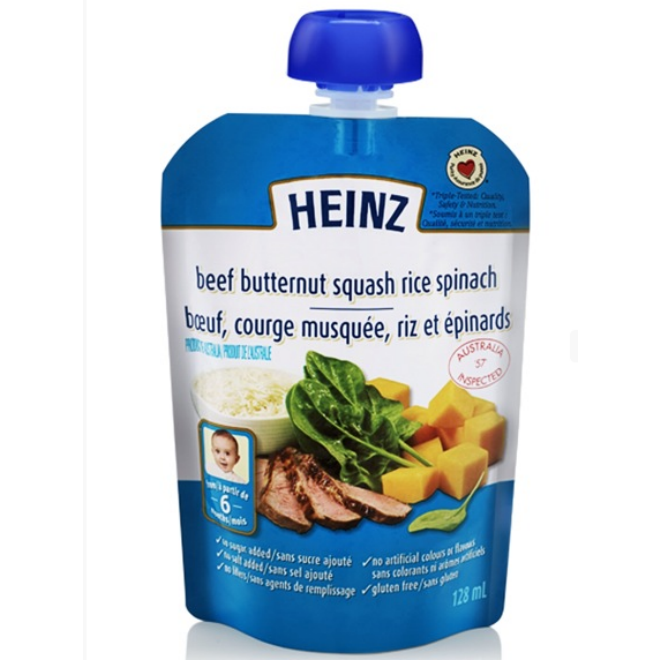
“We have been working closely with FDA on regulations, and this report highlights the need for the agency to accelerate its proposed timeline for publishing them,” Krishnamoorthi said.
However, there are potential downsides to moving too quickly on regulations, the FDA said.
“While we understand that people may want rapid changes, it is crucial that measures to limit toxic elements in foods do not have unintended consequences—like limiting access to foods that have significant nutritional benefits by making them unavailable or unaffordable for many families,” a spokesperson told CNN.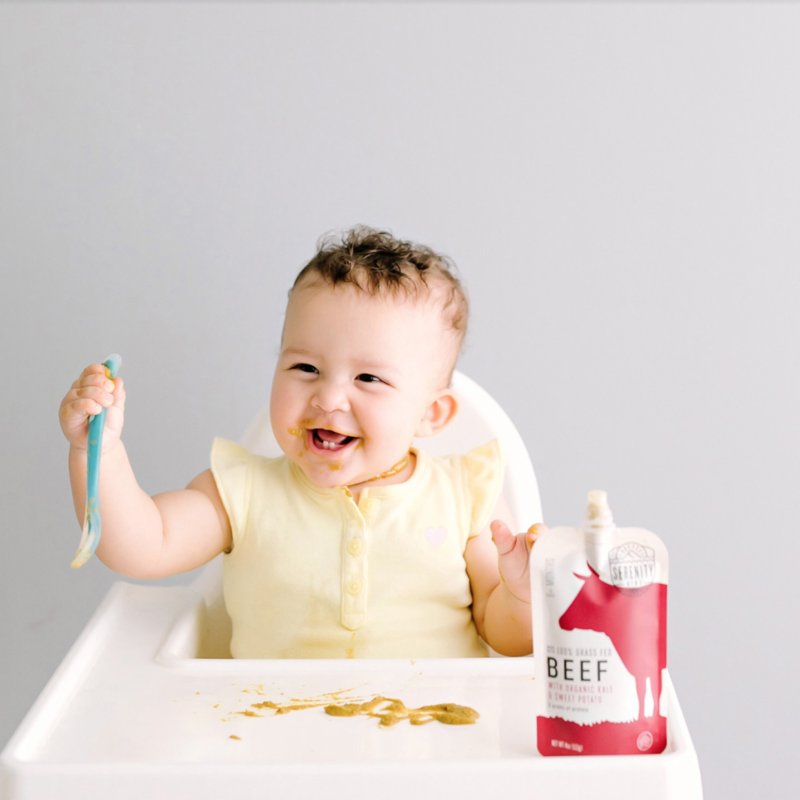
Parents can act as well, experts say, by pushing their representatives to support the proposed Baby Food Safety Act or by refusing to purchase baby foods from manufacturers who do not comply with the safety recommendations.
Parents can also try to avoid foods, such as rice, that typically absorb more heavy metals from the soil. The 2019 investigation by Healthy Babies Bright Futures found cereal and rice-based snacks like puffs had the highest arsenic levels.
When rice is served, Healthy Babies’ Houlihan suggests cooking the rice in two steps:
- Boil 1 cup of rice with 4 cups water for 5 minutes
- Pour into a colander and discard the water
- Cook drained rice with 2 cups fresh water over low to medium heat, covered, until cooked.
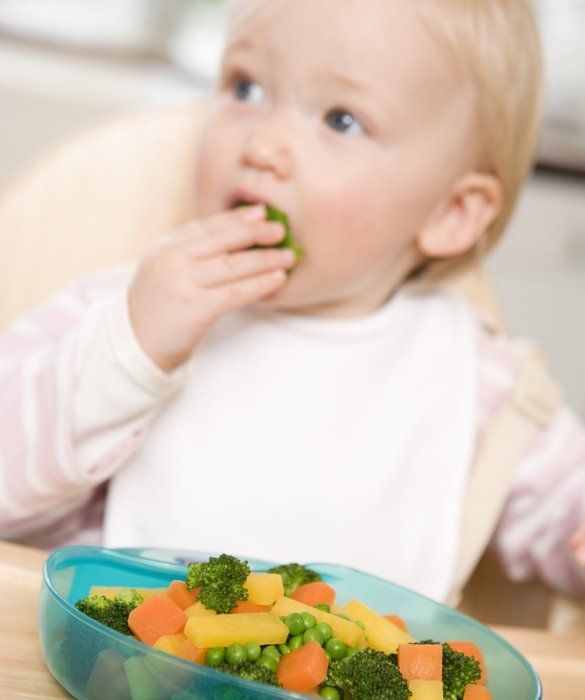
Using this method “can remove up to 70 percent of the arsenic while still preserving some of the nutrients,” Houlihan said.
Mother feeds baby boy with a spoon porridge.
Shutterstock/ElRoiNo added sugar for babies, US advisory panel recommends
The group’s investigation also found carrots and sweet potatoes to be among those most contaminated with lead and cadmium. But don’t eliminate carrots and sweet potatoes entirely, Healthy Babies’s Houlihan advised, because they are full of vitamin A and other key nutrients.
Instead, “serve a variety of fruits and vegetables, instead of serving the same thing every day.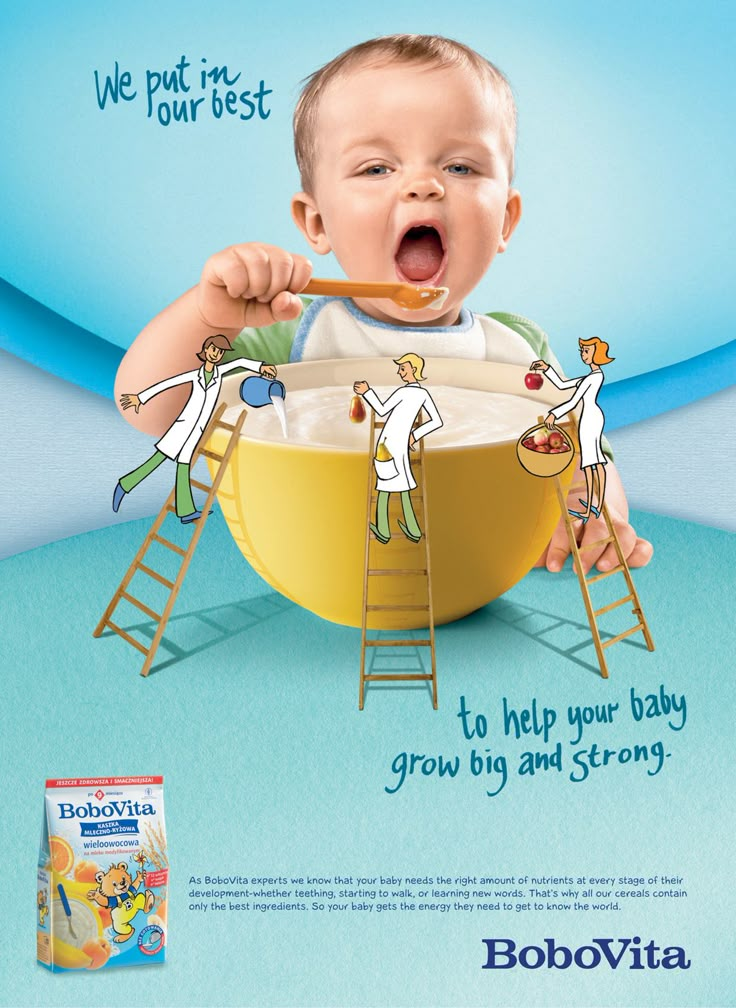 This avoids accidentally concentrating any particular contaminant in a child’s diet,” Houlihan advised.
This avoids accidentally concentrating any particular contaminant in a child’s diet,” Houlihan advised.
The Healthy Babies analysis found parents can reduce their baby’s risk of exposure to lead and cadmium by 73% by taking these steps.
When carrots, sweet potatoes and other root vegetables are served, be sure to peel them to remove heavy metals on the surface, she said, adding that “organic and homemade baby foods also contain heavy metals, so the steps above apply to those foods as well.”
Clarification: This story has been updated to reflect that while Campbell owned Plum Organics during the time period of the investigation, Plum Organics has since been sold.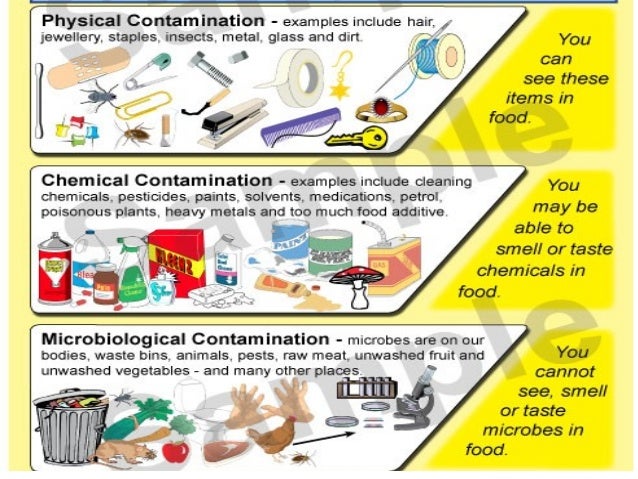
News | RIPI
Why treat rivers? Part 3
News | 2022
November 22, 2022
The third part is dedicated to Russia :
|
read more...
Why treat rivers? Part 2
News | 2022
October 28, 2022
We invite you to read the second part of the material on the problem of water pollution by pharmaceuticals.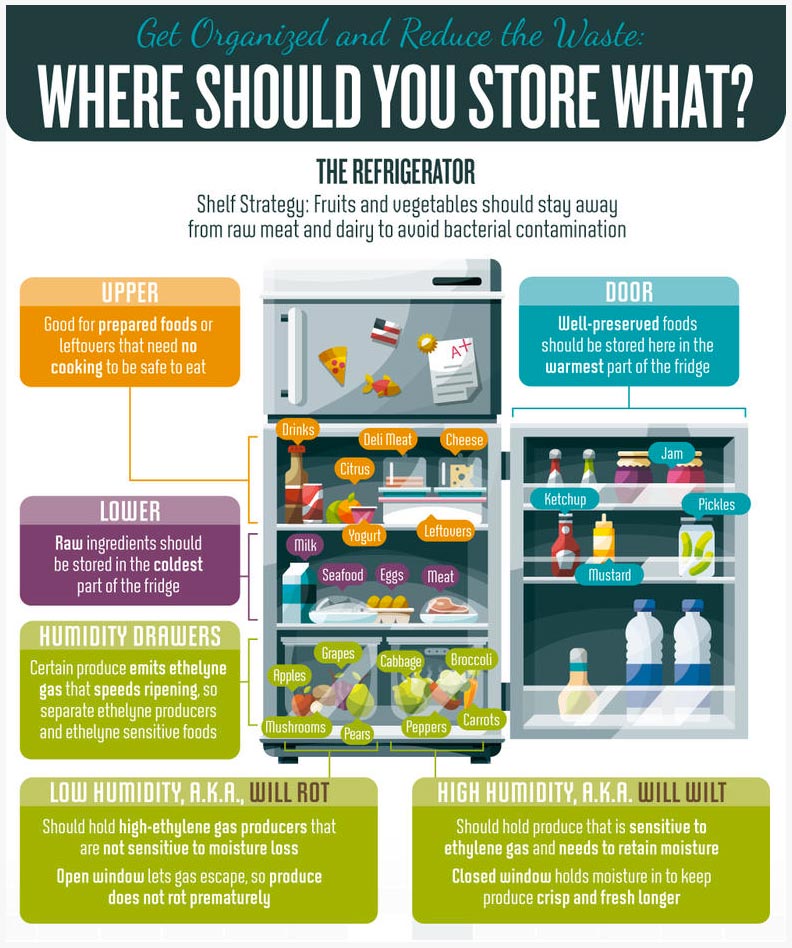 It tells about whether there are residues of medicines in drinking water, how international organizations such as WHO treat this, and how this problem is being solved in the world.
It tells about whether there are residues of medicines in drinking water, how international organizations such as WHO treat this, and how this problem is being solved in the world.
Let us immediately warn you that the topic is not easy, not intended for superficial reading.
read more...
nine0042Why treat rivers?
News | 2022
October 13, 2022
Water and air are the vital resources of mankind, on which the health and longevity of people depend. And although Russia does not belong to countries experiencing water shortages, the issues of the suitability of water for drinking from centralized water supply sources continue to worry Russians.
We are starting a series of publications dedicated to medicinal water pollution prepared by our expert Tatyana Eremenko .
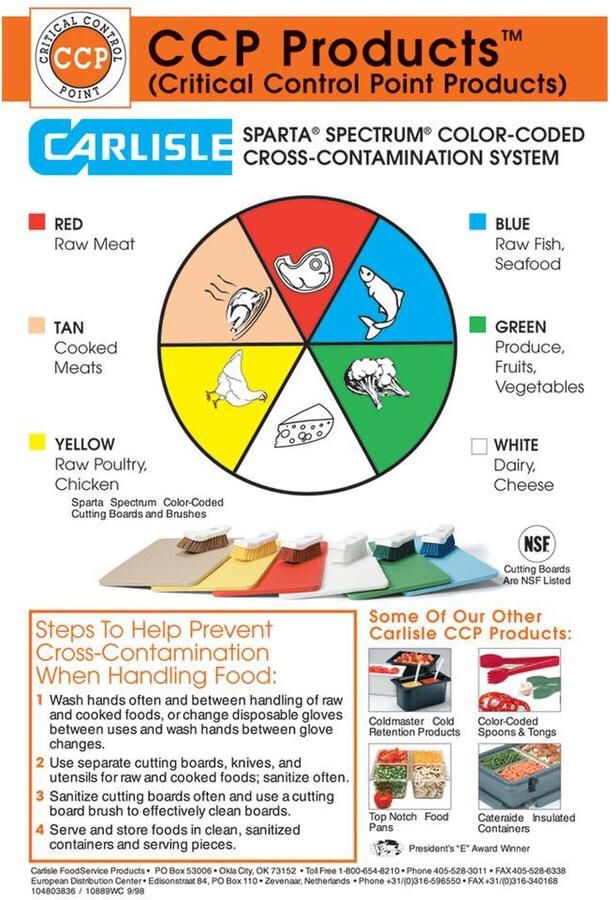
read more...
Honest position on "Honest Sign"
News | 2022
September 30, 2022
"... It will be honest, correct and fair to recognize as erroneous the mandatory use of the Chestny ZNAK dairy product identification labeling system"
Our partner Voronezh regional public movement for the protection of consumer rights "The Quality of Our Life" published on its website the correspondence with the Ministry of Industry and Trade on the topic "Chestnoy ZNAKA" in dairy products.
Continuing the topic raised in the article "How to deal with counterfeiting", we publish the full version of the correspondence between the VROD "The Quality of Our Life" and the Ministry of Industry and Trade.

read more...
How to deal with counterfeit goods
News | 2022
August 31, 2022
"Our business still does not disdain methods that allow falsifying products, replacing some ingredients with others. But today we see all production control at the enterprise on electronic systems - whether safety and quality studies were done, in which laboratories, etc. "Electronic systems contain all information about the product from the field to the counter. This is much more efficient than routine checks"
The head of Rosselkhoznadzor Sergei Dankvert gave such a high assessment of the effectiveness of electronic systems in an interview with Rossiyskaya Gazeta (link).
The question arises: if electronic systems show the real picture, why do a few public organizations still, during random checks, detect counterfeit products on store shelves and in the public sector?
read more.
..
Why spoiled fruits and vegetables are dangerous
News | 2022, Baby food
July 31, 2022
"...the fruits that the son brings home are always rotten or spoiled"
Continuing the publication of materials on the indicators of verification in baby food ("What needs to be checked in food supplied to kindergartens and schools") RIPI expert Tatyana Eremenko spoke about mycotoxin patulin , its properties, hidden dangers and how it relates to the nutrition of children in schools and kindergartens.
Today, the topic of organizing high-quality and tasty meals for children in educational institutions is more relevant than ever. The demand for normal food products in kindergartens and schools in Russia is huge. At the same time, there are enough responsible manufacturers, food suppliers and own resources to provide healthy nutrition for children.
However, based on the results of our numerous surveys of parents and children (2020, 2021), contrary to all regulatory documents and common sense, it happens that children get on the table, to put it mildly, something that is subject to immediate disposal. nine0003
read more...
School is not only education
News | 2022, School meals
June 27, 2022
At the end of May, a round table of the Just Russia - For Truth faction was held on the topic "All-Russian Parents' Meeting. Manifesto of Parents on the Future of the Modern School" (more).
We bring to your attention the transcript of the speech of the Head of the Committee for the Safety of Products for Children and Adolescents in the Consumers Association, RIPI expert Kovalenko Inna Stanislavovna.
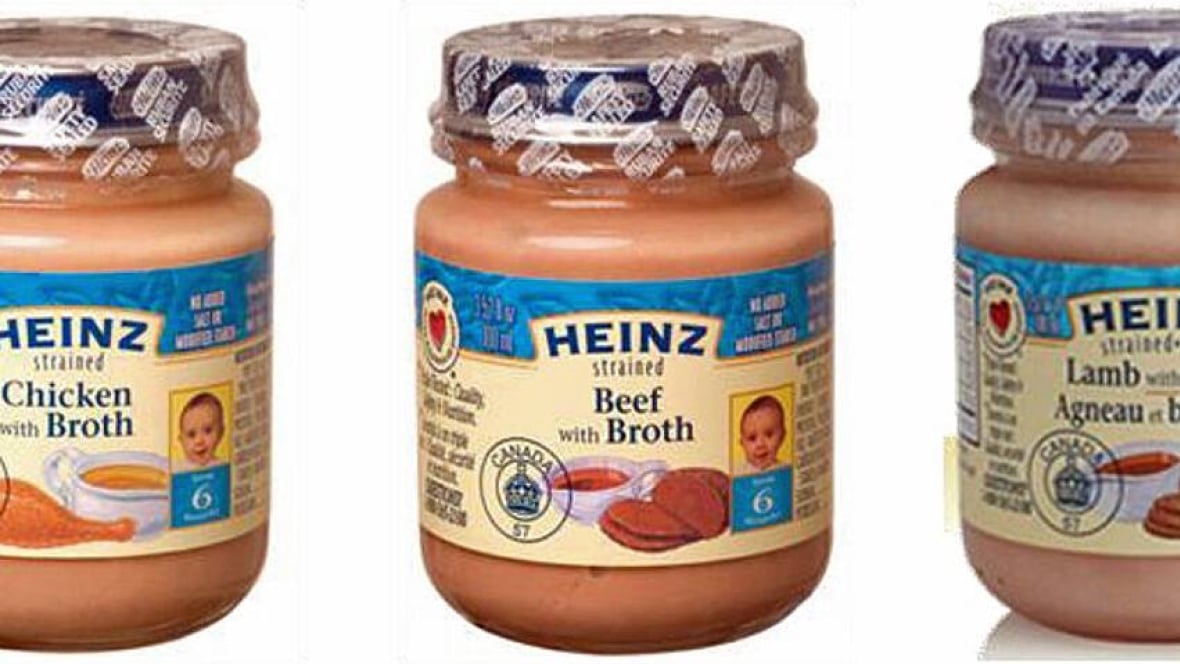
read more...
Turning point in the relationship between the parent community and officials
News | 2022, School meals
May 26, 2022
On May 20, 2022, a significant event took place in the Small Hall of the State Duma - a "Round Table" on the topic: "All-Russian Parent Meeting. Manifesto of Parents on the Future of the Modern School" . Representatives of the Ministry of Education, deputies of the State Duma, experts, lawyers, doctors, psychologists and parents have gathered here for an open dialogue and search for new points of public consensus on what a modern school should be like. nine0003
Our expert Kovalenko Inna Stanislavovna , hygienist, epidemiologist, educational psychologist and public figure took part in it.
Her speech was dedicated to the fact that children need a new menu . That it is necessary to conduct research on eating habits and draw up a new menu for school meals. Ukrainian schoolchildren were provided with such a menu, many children who ended up in Russian schools regret their school burgers. And none of the adults thought about why children began to give these burgers?! And they began to give them so that they liked it, they wanted to go to a school where they taught an ugly, Russophobic, misanthropic ideology. If you don't lure, you won't teach. nine0003
read more...
Results of an independent survey of parents on school meals
News | 2022, Baby food, School meals
May 25, 2022
in the regions of the Russian Federation.
Hotline for parents". During the work on the project, more than 20 thousand citizens, mainly from 3 regions of the Russian Federation, applied to RIPI, where we managed to widely disseminate our questionnaire and information about the hotline among schools. More than 3 thousand parents were dissatisfied with the quality and organization of food. A detailed report can be viewed on the website ("Grant 08/01/2020 - 06/30/2021"). nine0003
read more...
Parents of children with allergies contact us
News | 2022, Baby food
May 18, 2022
" After changing the food supplier, the child developed an allergy, which subsides on weekends and resumes when visiting the kindergarten. I would like to understand the composition and additives in baby food to identify a possible allergen.
"
Such a request came to RIPI for laboratory testing of food from kindergarten.
Food allergy is an urgent problem for many, so we publish a commentary by RIPI expert Tatyana Eremenko , in which she gives advice on what parents should do in such a situation.
nine0042read more...
- 1
- 2
- 3
- 4
- 5
- 6
- 7
- 8
- 9
- …
- ›
- »
There is a severe shortage of powdered infant formula in America
Society 1540 nine0003
Share
The situation with infant formula has become so critical that Senator Tom Cotton has already called it a "national crisis", Congress began an investigation, and President Biden was forced to announce measures to curb the deficit.
nine0003 Photo: wikipedia.org.
Deliveries of infant formula to stores have been so reduced that large retail chains and pharmacies are forced to limit the number of cans "in one hand." For example, CVS and Walgreens only sell three packages of dry mix at a time. According to Datasembly, a company that tracks price indexes and sales of various products, in the first week of May, the lack of milk formula in warehouses across the country was 43% (for comparison, in April - 40%, and in November last year - 11%). Worst of all is the situation with warehouses in the states of Iowa, South Dakota, North Dakota, Missouri, Texas and Tennessee. Accordingly, prices rose sharply - by 18%. On eBay, some savvy sellers offer a $200 can of powdered formula, and there are sure to be buyers: in the US, three-quarters of children receive either full or partial formula in their first six months of life.
Worst of all are those families whose children, for medical reasons, cannot eat anything other than these mixtures. nine0003
Abbott fights bacteria
What caused this crisis? The official version, which we already wrote about: in February, the Food and Drug Administration (FDA) stated that certain mixtures of Similac (Similac), Alimentum (Alimentum) and EleCare (EleCare) are contaminated with the dangerous bacterium Cronobacter sakazakii, which can lead to death. Four kids were hospitalized, two died. Abbott Nutrition has announced a voluntary recall of some batches of this baby food that was produced at its plant in Sturgis, Michigan (these powdered formulas were found to be contaminated). In early March, several more dry mixes produced at the same plant were recalled due to Salmonella contamination. nine0003
Bacteria in baby food is not uncommon. Back in 2004, the Codex Committee on Food Hygiene (CCFA) of the World Health Organization revised the International Code of Hygienic Practice for Foods for Infants and Older Children, tightening the requirements, including due to cases of contamination of mixtures with bacteria.
A review of Abbott's records shows that the company has had to destroy batches of premixed formulas in the past due to the presence of Cronobacter. In addition, in February, the FDA emphasized that the recall only applies to dry powder from certain batches, and does not apply to liquid infant formula and other baby foods manufactured by Abbott Nutrition. In other words, it is hard to imagine that a temporary shutdown of the production line of several (!) dry mixes at one plant can lead to such a large-scale national crisis. Not to mention the fact that other manufacturing companies were not affected by the recall, and they continue to produce their products. nine0003
Furthermore, the company's official statement dated May 11 states: “After careful examination of the situation, there is no evidence that these cases [infant deaths - Ed.] are associated with the consumption of our baby food; the bacterium Cronobacter sakazakii, which was found during testing, was in areas not in contact with products.
The bacterial samples found at the plant did not match the strains found in the babies' tests. An Abbott spokesperson also said that all products tested for Cronobacter sakazakii and Salmonella were negative and that no Salmonella was found at the Sturgis facility during the investigation. nine0003
However, the FDA insisted that infant formula was produced in unsanitary conditions, and Abbott's internal records showed that the company destroyed some of its products due to bacteria in the factory. On May 16, Abbot reached an agreement with the FDA that allowed the production lines to restart. The company reportedly acknowledged the unsanitary conditions at the plant and is committed to rectifying the shortcomings. In addition, Abbott has agreed to engage external experts who will develop a plan to reduce the risk of bacterial contamination at the plant and conduct periodic assessments to ensure the company is in compliance. In the event that any products again test positive for bacteria, the company will be required to dispose of them and stop work until the source of infection is eliminated.
If Abbott does not comply, it faces $30,000 in damages per day of violation (up to $5 million in annual fines). The terms of the agreement are valid for at least 5 years. nine0003
FDA chief Robert Kaliff stated, "The public can be assured that our FDA will do everything possible to ensure that baby food continues to meet safety and quality standards." The agreement between Abbott and the FDA has been approved by the US District Court for the Western District of Michigan. However, it’s too early for parents to rejoice: Abbot said that a restart is possible within two weeks, and mixtures will appear on store shelves no earlier than in 6-8 weeks.
Disrupted logistics and monopolies
Another reason that is less talked about is disruptions in the supply chain. Everything affects: a critical shortage of labor (which we have already written about more than once), problems with the production of packaging and transportation. All this together affects the production and distribution of goods.
According to Datasembly CEO Ben Reich, "the economic situation affects this category of goods more than others."
The crisis has reached such proportions that even the federal authorities were forced to react. On May 12, President Joe Biden met with representatives from Walmart, Target, Reckitt and Gerber to discuss ways to reduce the deficit. He also instructed the Federal Trade Commission to use its powers to monitor allegations of price gouging and the Justice Department to work with state attorneys general to crack down on retailers who took advantage of the situation. nine0003
On May 13, the House of Representatives Oversight Committee announced the launch of an investigation into the baby food situation. Letters were sent to all four manufacturers asking them to explain how they plan to handle the crisis and what they are doing to prevent this from happening in the future. In addition, the Committee will also investigate allegations received from consumers of price gouging.
The meeting of the Committee on this issue is scheduled for May 26.
At the same time, the recall of goods for one reason or another is a common occurrence. Thousands of medicines and products are withdrawn from sale every year, and yet there is no nationwide crisis, and sellers do not restrict the sale of essential items in the spirit of Soviet trade. nine0003
Four large companies now control 90% of America's supply of infant formula: Abbott, Mead Johnson, Gerber and Perrigo Nutritionals. Abbott, which makes Similac, and Mead Johnson, which makes Enfamil, have nearly 80% of the market. Mead Johnson has already stated, “We have taken steps to ramp up production of Enfamil and are currently shipping 50% more products to address consumer concerns as quickly as possible.” Considering how the prices for dry mixes have risen, the crisis is beneficial for all manufacturing companies. nine0003
Importing baby food will be easier
Another factor in the crisis is America's regulatory and trade policies.
The FDA regulation of infant formula is so strict that most products coming from Europe cannot be bought here due to technical issues such as labeling requirements. There is no question about the quality of European blends: studies have shown that in some respects they can even be better than American ones, because the European Union bans certain types of sugar (for example, corn syrup). The US also restricts the import of formulas that comply with FDA regulations. For large volumes, the import tax for mixtures can exceed 17%. Currently up to 98% of the baby food on the market is made in the USA. And during a crisis, the lack of alternative supplies becomes a rather big problem.
Therefore, for the first time, an unprecedented step is announced - the US intends to increase imports of infant formula in order to reduce the nationwide shortage. Potential importers in the FDA are manufacturers from Australia, New Zealand, the UK and the Netherlands. On May 16, the FDA called on foreign manufacturers to apply to import their products into the United States.
It is reported (however, without going into details) that the verification process will be "optimized". White House press secretary Karine Jean-Pierre said that "priority will be given to applications from those companies most likely to be able to prove product quality and be able to get the most baby food to American stores as quickly as possible." Thus, the advantage will be given to large manufacturing companies, which will be able to quickly cover the shortage that has arisen. nine0003
However, even if import applications and related documentation confirming the safety of mixtures are submitted, relatively speaking, tomorrow, it may be weeks before the products reach the stores. Once the application is filed, the FDA will still need to review the baby food to ensure quality control to American standards. The import facilitation policy was adopted as a temporary measure for the next six months.
In the meantime, while parents of toddlers are rushing about in search of baby food, politicians from all sides have decided to use the crisis to their advantage.
So, Republican Congresswoman Kat Cammack posted a video on her Facebook account about how the federal authorities send packages of baby food to the border with Mexico: “American stores have empty shelves, there is no shortage at the border.” Cammack said the Biden administration should not put the needs of illegal immigrants ahead of the interests of American citizens. Another Republican politician, Rep. Eliza Stefanik, also said it was "absolutely unacceptable" and drew a parallel with Trump's famous slogan, "America continues to be put last." In turn, Democratic politicians Eric Svolvell and Ruben Gallego accused Eliza of wanting to "starve babies" in border centers where illegal immigrants are detained. nine0003
Only one thing can be said with certainty: even with the increase in production and the green light for imports, the situation with the shortage of infant formula will not change in the next couple of weeks.
Subscribe
Authors:
- Learn more

